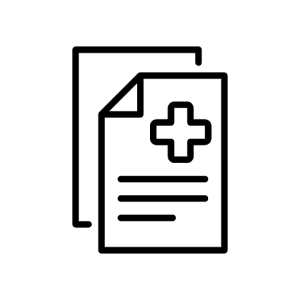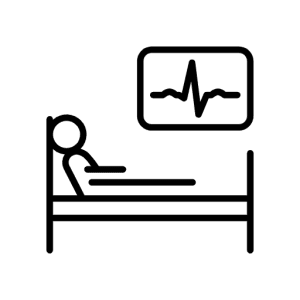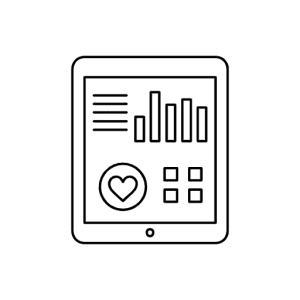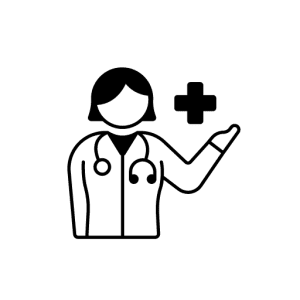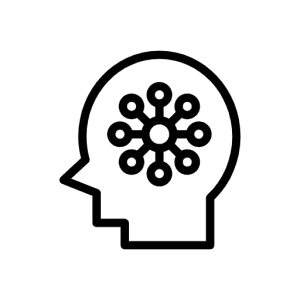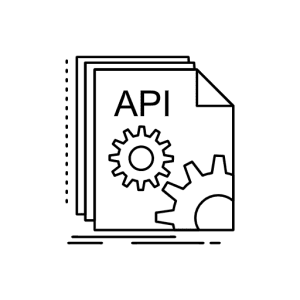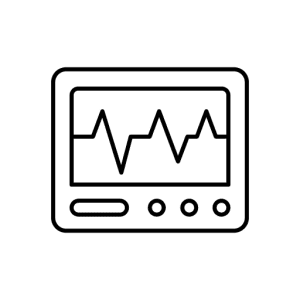Artificial Intelligence services - AIS
Remote healthcare solutions is greatest priority among care providers (Hospitals and Doctors) providers specially after the disruptions caused by the COVID-19 pandemic. Although remote sensing medical devices have existed for over more than two decades, and telemedicine has already been around for a while, the underlying technology has accelerated through the years. No more doctor visits. Today we have an interconnected network of intelligent devices capable of making decisions, work as groups, and send information to the cloud — Internet of Things (IoT)
There are various factors that affect the IoT driven healthcare application. Some of them are mention below:
- Continuous Research: It requires continuous research in every field (smart devices, fast communication channel, etc.) of healthcare to provide a fast and better facility for patients.
- Smart Devices: Need to use the smart device in the healthcare system. IoT opens the potential of current technology and leads us toward new and better medical device solutions.
- Better Care: Using IoT technology, healthcare professionals get the enormous data of the patient, analysis the data and facilitate better care to the patient.
- Medical Information Distribution: IoT technology makes a transparency of information and distributes the accurate and current information to patients. This leads the fewer accidents from miscommunication, better preventive care, and improved patient satisfaction
The broad applications for AI and machine learning in the healthcare domain are fast developing which can deliver an accurate diagnosis, individual treatment, and follow up after successful treatment. As healthcare becomes more consumer-focused due to rising costs and an emphasis on patient-centered care, healthcare providers are searching for new ways to engage and manage patients without increasing their clinical workload
An artificial intelligent machine should be able to accept information about the problem from its surroundings, generate a list of actions that it could take, and maximize its chance of achieving its goals by using logic and probability to choose the activities with the highest probability of success. The learning happens when the program assimilates its past experiences and uses that data to inform future actions. Doing this allows the machine learning &AI program to prioritize the choices that result in a high success rate
At 1Carecloud our Artificial Intelligence Services (IAS) are designed to helps medical professions in providing more scientific and detailed evidence based treatment, specially for those who require continuous care. Using some of the best global research work on data science and coupled with our SDA (Smart Digital Assistant ) services of 1Carecloud platform the Doctor can have more accurate understanding of patient condition and possible treatment protocols
Some of the areas where we are working are :
- How we can apply the building blocks of AI to help you innovate and understand emerging technologies
- Identify problems healthcare providers face that machine learning can solve
- Analyze how AI affects patient care safety, quality, and research
- Relate AI to the health science, practice, and business of medicine
Researchers have developed medical machine learning algorithm to predict acute toxicities in patients receiving radiation therapy for head and neck cancers. In radiology, deep learning in healthcare identifies complex patterns automatically, and helps radiologists make intelligent decisions reviewing images such as conventional radiographs, CT, MRI, PET images and radiology reports.
The performance of machine learning-based automatic detection and diagnosis systems has shown to be equivalent to that of an experienced radiologist. Google’s machine learning applications in healthcare were trained to detect breast cancer and achieved 89 percent accuracy, on par or better than radiologists. These are just a few of examples of the many uses of machine learning in healthcare.
The future is full of opportunities with advancement in AI technologies and we are committed to bring the best of it to the healthcare industry, improving diagnostics and treatment anywhere across the globe
The broad applications for AI and machine learning in the healthcare domain are fast developing which can deliver an accurate diagnosis, individual treatment, and follow up after successful treatment. As healthcare becomes more consumer-focused due to rising costs and an emphasis on patient-centered care, healthcare providers are searching for new ways to engage and manage patients without increasing their clinical workload
An artificial intelligent machine should be able to accept information about the problem from its surroundings, generate a list of actions that it could take, and maximize its chance of achieving its goals by using logic and probability to choose the activities with the highest probability of success. The learning happens when the program assimilates its past experiences and uses that data to inform future actions. Doing this allows the machine learning &AI program to prioritize the choices that result in a high success rate
At 1Carecloud our Artificial Intelligence Services (IAS) are designed to helps medical professions in providing more scientific and detailed evidence based treatment, specially for those who require continuous care. Using some of the best global research work on data science and coupled with our SDA (Smart Digital Assistant ) services of 1Carecloud platform the Doctor can have more accurate understanding of patient condition and possible treatment protocols
Some of the areas where we are working are :
- How we can apply the building blocks of AI to help you innovate and understand emerging technologies
- Identify problems healthcare providers face that machine learning can solve
- Analyze how AI affects patient care safety, quality, and research
- Relate AI to the health science, practice, and business of medicine
Researchers have developed medical machine learning algorithm to predict acute toxicities in patients receiving radiation therapy for head and neck cancers. In radiology, deep learning in healthcare identifies complex patterns automatically, and helps radiologists make intelligent decisions reviewing images such as conventional radiographs, CT, MRI, PET images and radiology reports.
The performance of machine learning-based automatic detection and diagnosis systems has shown to be equivalent to that of an experienced radiologist. Google’s machine learning applications in healthcare were trained to detect breast cancer and achieved 89 percent accuracy, on par or better than radiologists. These are just a few of examples of the many uses of machine learning in healthcare.
The future is full of opportunities with advancement in AI technologies and we are committed to bring the best of it to the healthcare industry, improving diagnostics and treatment anywhere across the globe

